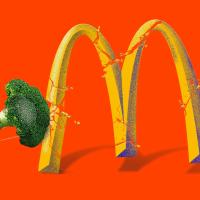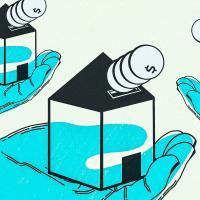“The best laid plans of mice and men often go awry,” and startups during COVID-19 are no exception. Startup companies have a hard enough time finding footing in their respective markets as it is. The sad truth is that 90% of startups fail and 50% do so within five years of opening.
Throw in a global pandemic and many of these companies are now facing the stark reality that their business may soon become a part of this statistic. Many moving parts must come together for a startup to have lasting power and profitability, but the coronavirus outbreak has led to an array of unprecedented challenges.
Entrepreneurs during COVID-19 are having to look objectively at their businesses and their place in the current market to determine whether it’s time to double down on investments or cut their losses and wave the white flag.
One standout entrepreneur is choosing to face the predicament of losing his startup, with a hopeful eye toward the future. While 2020 will undoubtedly lead to failure for a number of startups during COVID-19, Jason Mayden is preparing for long-term success in a post-pandemic world.
The Air Jordan Designer Turned Entrepreneur
There are only eight people on the planet who have designed an Air Jordan shoe, and Jason Mayden is one of them. Heavily influenced by Michael Jordan’s iconic charisma and work ethic, Mayden decided at a young age that design would be his sport.
Intrigued by the lore that Michael Jordan improved his technique by taking 1,000 shots per day, Mayden committed to doing 1,000 sketches per day. His efforts didn’t go unnoticed, and he soon became Nike’s first Black design intern. He went on to design at Nike for 13 years and is responsible for the Air Jordan 24, among many other popular Nike and Jordan shoes.
After becoming a father, Mayden’s passion and focus shifted from designing for adults to creating for kids, so he started Super Heroic, which specialized in children’s footwear and apparel.
Super Heroic’s intention was much greater than simply providing the younger population with well-designed shoes. It was built to provide kids with a mentality that would help them actualize their potential.
Using Behavioral Science to Build Apparel with Purpose
While creating Super Heroic, Mayden relied heavily upon behavior change research and a study called “The Batman Effect.” The 2015 study was performed at the University of Minnesota, where a toy was put into a box and a child was given a set of keys to open the box, however, none of the keys worked.
The study was a test to see how long a child would persist at trying to open the box, and what factors might impact their level of perseverance. A test group of children was asked to imagine themselves as superheroes and they were dressed as such.
What the study showed was that the children envisioning themselves as superheroes held themselves to a higher standard. They were no longer their regular selves, but rather, their exemplar selves. These children held themselves to the standards, ethics, and values attached to a superhero.
They outperformed the kids wearing regular clothing because they saw a greater importance in fulfilling the duties expected of them. Mayden used this research to fuel the design behind his brand.
“I landed at superheroes as an archetype through this narrative framing that not only gives kids the agency to see themselves as capable and possible, but for them to be the hero of their own journey. That’s what I really wanted to do is build a movement,” Mayden discussed.
He went on to explain, “We build our product physically to fit the modality of play that both boys and girls have at that age because when these kids discover what they can do on the playground, that translates into confidence in the classroom. That confidence in the classroom translates into people who aspire towards higher versions of people they think they can become.”
Challenges For Startups During COVID-19
Mayden did just about everything right. He had experience, a strong idea and model, funding, a philanthropic purpose paired with a profitable strategy. He even had endorsements from mega-celebrities like Magic Johnson. What he didn’t have was a crystal ball to show him all the ways a global pandemic could bring his vision to a screeching halt.
Toward the end of 2019, Mayden started planning for the following year’s roll-out, which was set to campaign around NASA and STEM education. Problems soon began to arise, though. Some companies were beginning to have apprehensions about doing business in Asia due to the tariff war and the issues between China and Hong Kong.
These concerns were soon compounded by the rapid spread of COVID-19, creating a perfect storm that would put the future of Super Heroic in jeopardy.
The business relied heavily upon an international supply chain as well as marketing during the back-to-school season. With quarantine orders disabling his supply chain and the uncertainty of when schools would be back in session, Mayden was left with an impossible decision: seek additional funding to keep the business afloat, or accept defeat and wind down operations.
Mayden and Super Heroic’s leadership team ultimately took a vote and determined that ending the company was the right thing to do. Rather than viewing this decision as a failure however, Mayden sees it as one that will enact future success.
Tips for Startups During COVID-19
Mayden’s perspective offers excellent advice for other startups during COVID-19: “I think that one part of entrepreneurship that people gloss over is that in your early days of building your business at the seed stage, anyone that gives you capital is placing a bet on you, not the idea. Ideas change because of market conditions, but early on it’s a bet on you: you being responsible, you being ethical, you being very clear in your communication, and you being a person that’s willing to take the blame and give the praise.”
While some startups facing similar situations in 2020 might understandably attempt to raise another round of capital and do anything else they can to keep their business alive, Mayden felt that there was a better way.
He says, “I believed that if I went and raised more money, it would simply be an exercise in paying our salaries and keeping our company afloat, without any future promise of delivering any value.”
While businesses struggle to survive COVID-19, many are forced into shortsightedness which is perceived as necessary. An important lesson can be learned from Mayden and his approach to closing Super Heroic, though.
Just as he built a company intended to help others envision their best selves, he truly sought the best way to handle the finances and expectations of those who had bet on him. By shutting down his business ethically, Mayden is preparing for future success.
While it might be true that the large majority of startups will fail, it’s also true that real entrepreneurs, like Jason Mayden, will go on to start new companies. Being an entrepreneur means thinking beyond present profitability to conduct business in a way that helps investors, employees, and consumers see your best self.
For more interesting news about the people and ideas that are changing our world, subscribe to Freethink.


